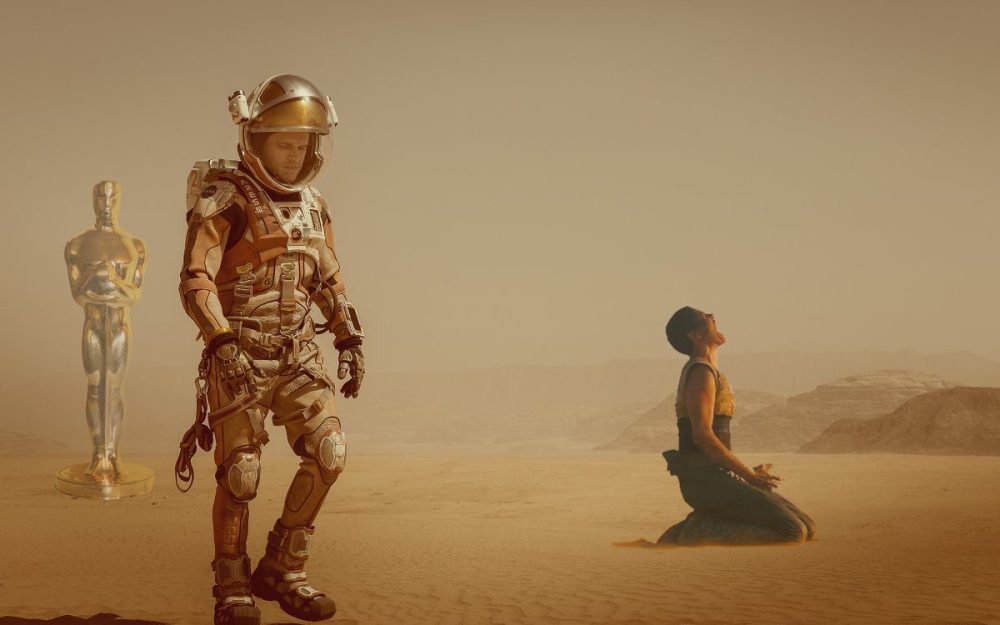The Academy Awards are just 3 days away, so now is as good a time as any to debate the very idea of the “Oscar movie,” and why the Best Picture designation isn’t always the measure of true best.
I know that the term “best” is completely subjective. I understand that everyone has varying opinions on what’s great and why. For the purposes of this argument, however, I’m defining “best” as those films that fall into the popular taste criteria. The best films are the ones beloved by millions. The best films are the ones that live on from generation to generation or become one of the crowning statements of the generation from which they were created. The best films are those that fall into the film canon of critical and popular success, becoming essential classics. Think of these films in the same vein as the literature that makes up the curriculums of most high school English classes. Classics.
For context, let’s look back at some of the past Best Picture races in the Academy’s more than 88-year history.
If you read any canonical list of American films, like “AFI’s 100 Years…100 Movies” for example, you’ll find a collection of titles that are household names. Again, these are the accepted classics of American cinema. Now consider the fact that a number of those movies weren’t even nominated for an Oscar. Classics like Charlie Chaplin’s Modern Times, John Ford’s The Searchers, and Kubrick’s The Shining didn’t even receive one nomination in any category. Neither did James Whale’s Frankenstein in 1931, a year that saw Cimarron win for Best Picture, or King Kong in 1933, when Cavalcade won Best Picture. Go all the way back to the first Academy Awards in 1929, when William Wellman’s Wings took home the Best Picture honor, and you’ll find that Fritz Lang’s sci-fi masterpiece Metropolis and Al Jolson’s The Jazz Singer (the first talking picture) lacked even a Best Picture nomination. You remember those classic films, Wings, Cimarron, and Cavalcade, though, right? Precisely my point.
There were other years in Academy Awards history where the film now regarded a classic was in the running, but beat out by another film most can barely remember today. In 1996, The English Patient beat out Fargo, and who can forget 1998, when the now nearly forgotten Shakespeare in Love beat out Saving Private Ryan, and The Big Lebowski wasn’t even nominated for a single award. Or, perhaps craziest of all, the year 1941, when The Maltese Falcon and Citizen Kane, long considered the most important American film ever made, lost the Best Picture award to John Ford’s How Green Was My Valley.
That’s not to say the Oscars never get it right. In fact, the Best Picture is often just that. Casablanca, Ben Hur, Lawrence of Arabia, The Sound of Music, and The Godfather are undeniable classics deserving of their Best Picture wins. There have also been some close races, like 1939, when Gone With the Wind edged out Wizard of Oz for Best Picture.
All of that said, some may argue that there is an Oscar algorithm. We’ve all heard the terms “Oscar buzz” or “Oscar bait,” referring to certain genres like historical epics or films featuring characters with mental handicaps having an edge. I don’t fully buy into that theory. There is so much political campaigning behind the Academy Awards these days that, to me, the Oscar has become little more than a promotional tool used by studios to leverage film audiences.
So, what are the true best films of 2015? Which of these films are destined to become classics and enter the film canon?
2015 was a monumental year for box-office returns. In fact, it was the biggest year ever in domestic returns, as year-end revenue crossed $11 billion for the first time in history. For context, with $11 billion, Best Picture nominee Brooklyn, with a budget of $11 million, could be produced a thousand times over.
First, Jurassic World grossed $1.67 billion worldwide and became the third-highest-grossing film of all-time (adjusted for inflation) both domestically and globally. That is, until Star Wars: The Force Awakens grossed more than $2.041 billion, claimed that third global spot as its own (Avatar and Best Picture winner Titanic still claim the number one and two spots for worldwide box-office) and shot up to the number one spot for domestic gross. The Force Awakens is no doubt a contender for the film canon of the future, but box-office isn’t a historic indicator of “best.” If it were, the Transformers movies would rank right up there with The Godfather.
Back to the question of what, if any, 2015 Best Picture nominees will one day be considered classics. Only time will tell, but if I had to predict the future, The Martian and Mad Max: Fury Road will far outlive award frontrunners like The Revenant in the minds and memories of the movie-going public. What do you think?



Yes and No… The Revenant will be shown to future Cinematographers… Mad Max will be shown to kids because parents would want them entertained.